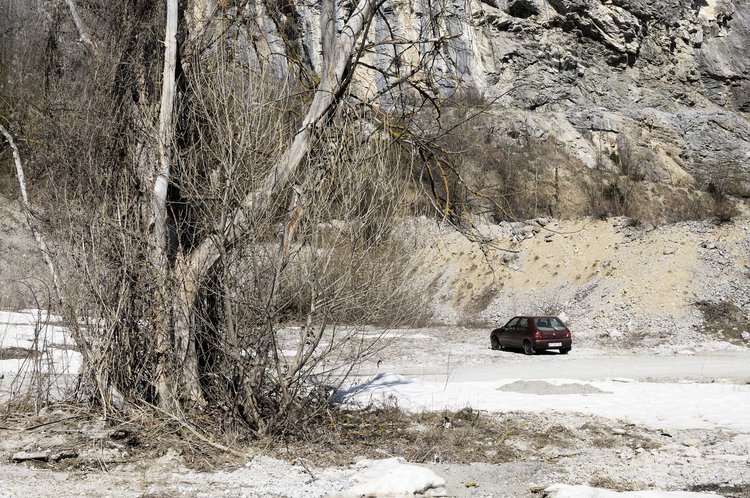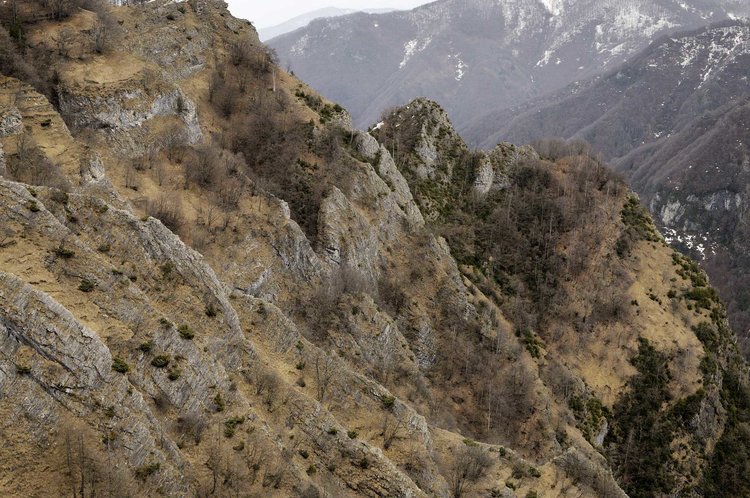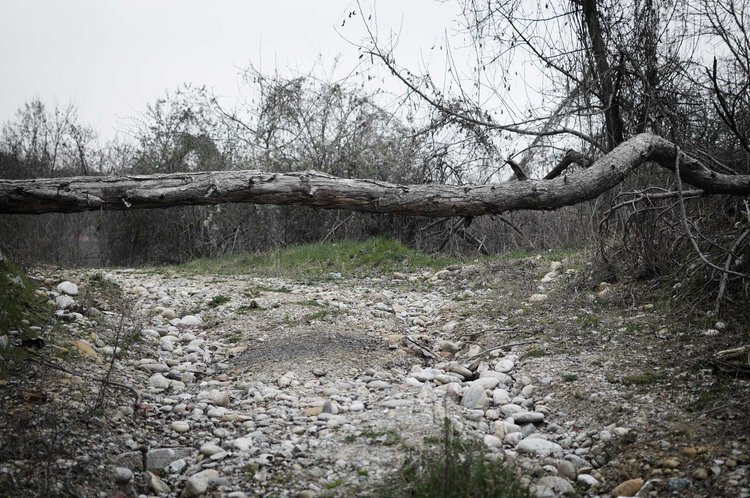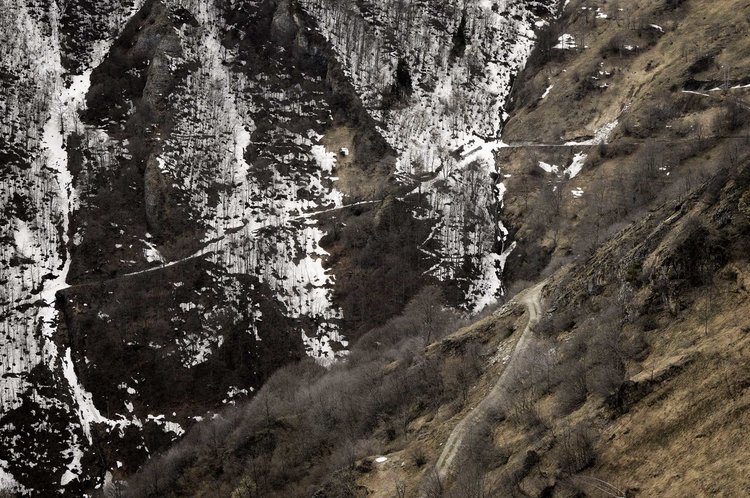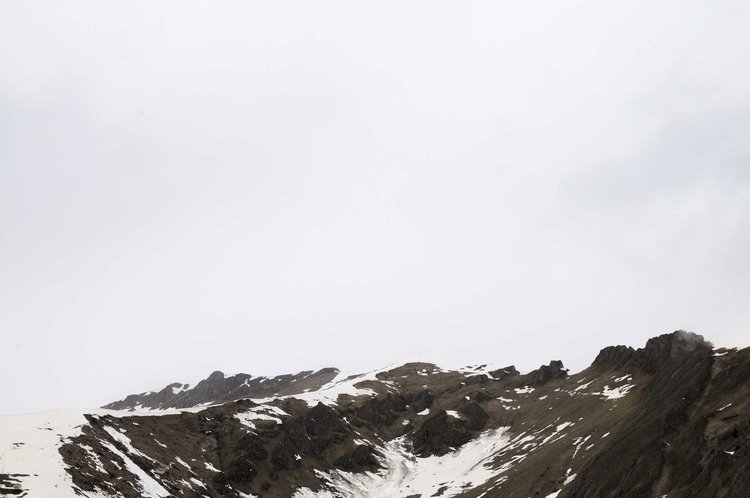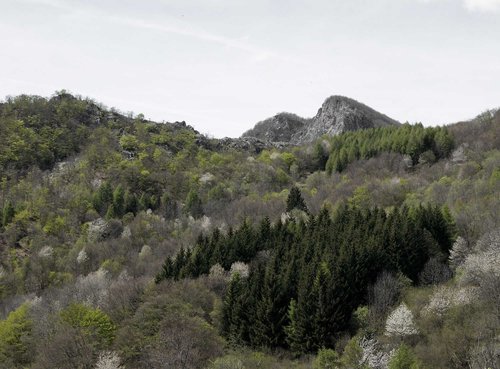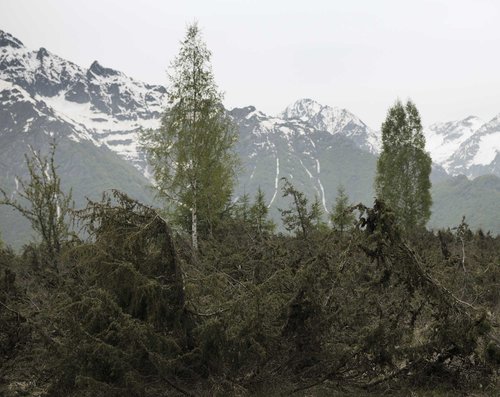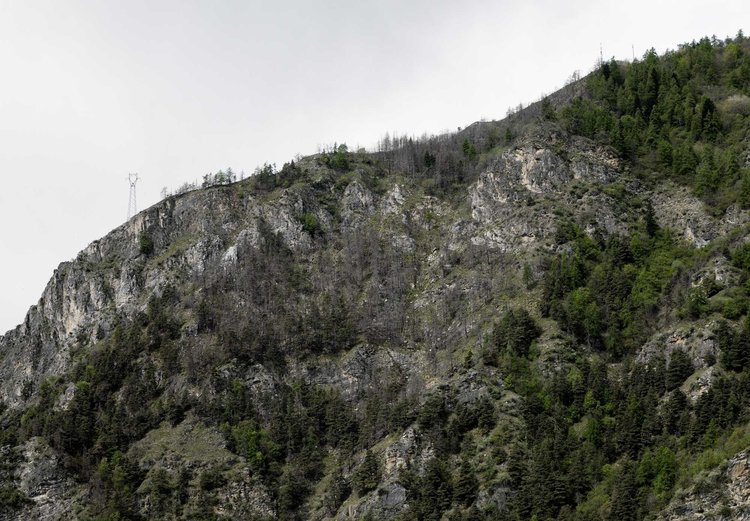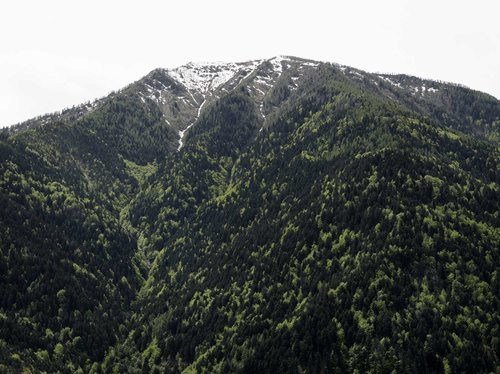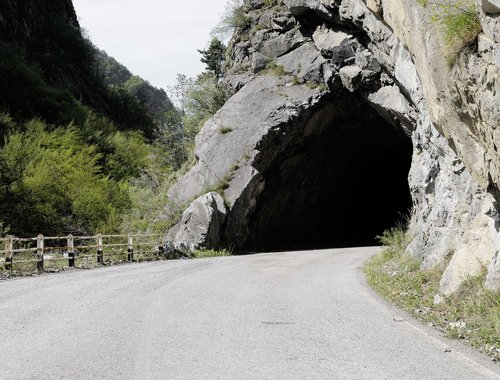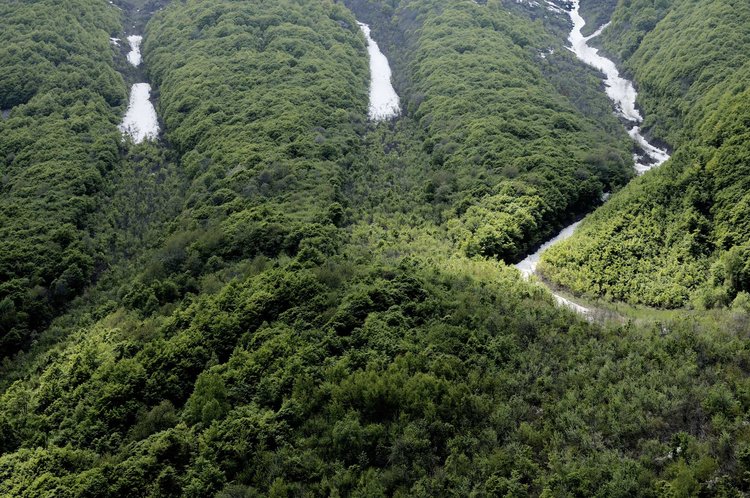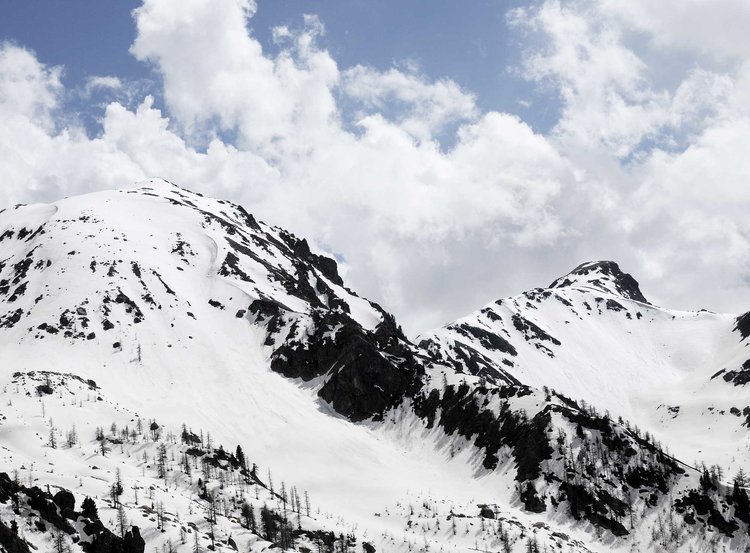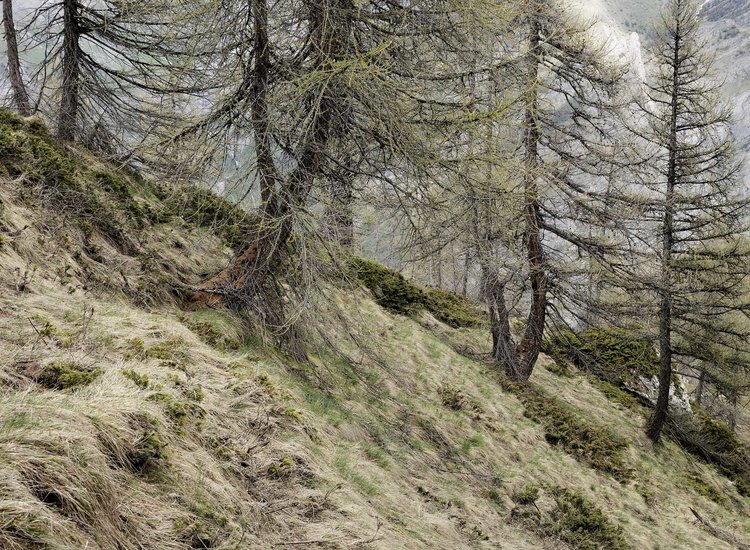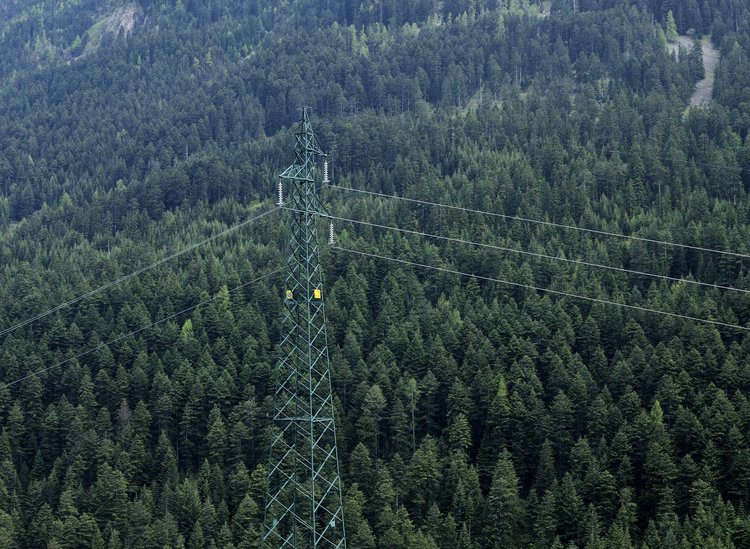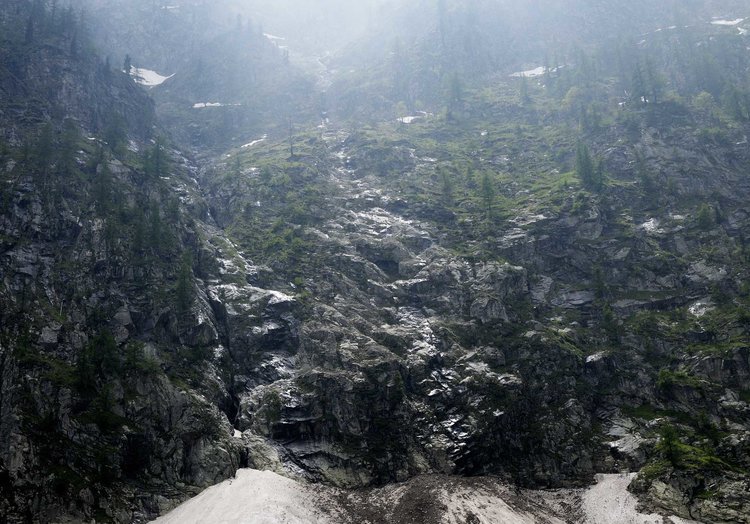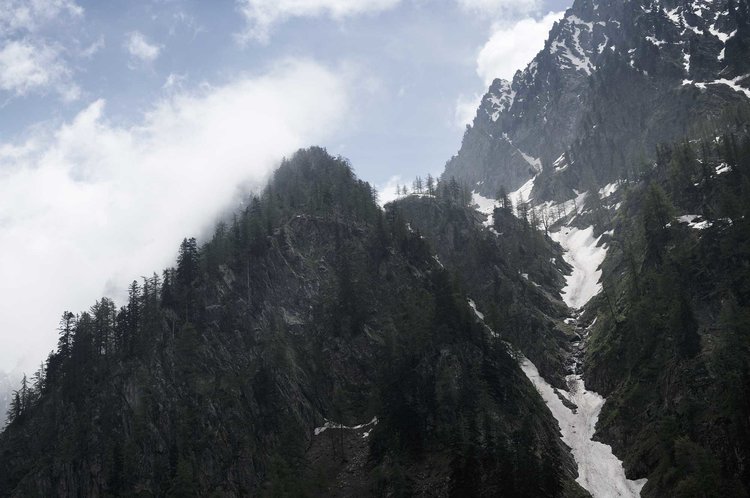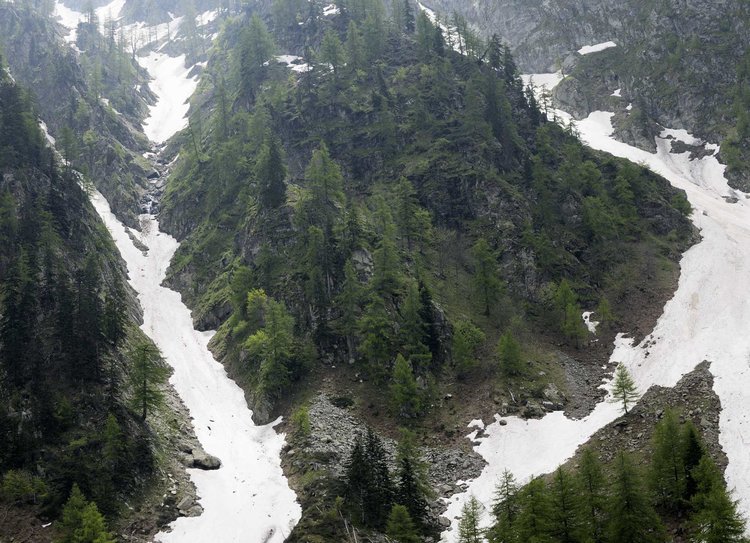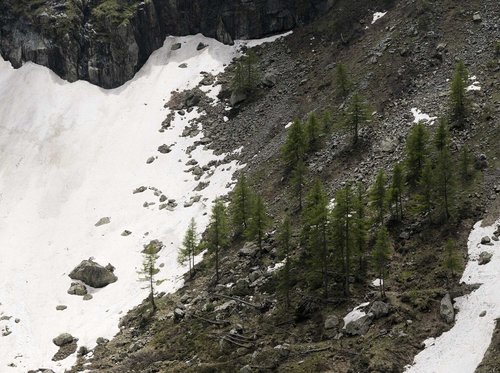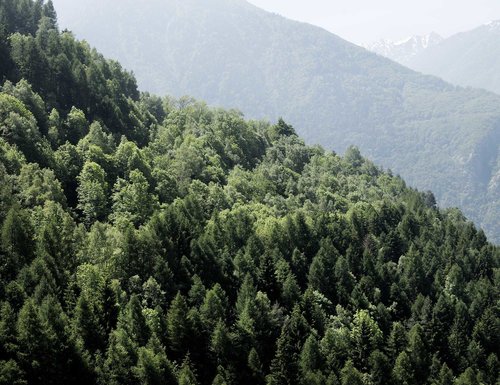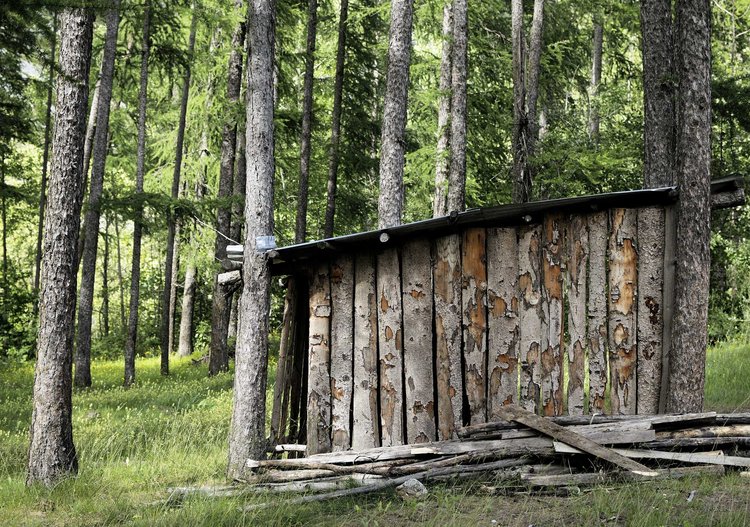DISAPPEARED
BY LUCA PRESTIA
Luca Prestia was born in Turin in 1971. He graduated in Modern History at the University of Turin, where he also earned his PhD in the same discipline. He started his experience as freelance photographer in the 90’s and he has been registered in the Association of Journalists of Piedmont since 2000. Prestia collaborated (as scenery and backstage photographer) on the production of documentaries about the social environment; his pictures have been published on several Italian and foreigner magazines as well as on printed and online newspapers or used as book covers. Since several years, his interest is mainly focused on landscape and documentary photography (both analogue and digital). His latest work, completed in the summer of 2014, is S[s]tate Border, which has just been published in a photographic book.
synopsis
For centuries – and until not long ago – the Alps represented an ‘unknown land’ for man, a true literary myth, full of references and suggestions linked to the most diverse legends, which in many cases, were frightening and however the result of fantasies that occur almost identically in folk tales of not even geographically contiguous places.
This stereotype, which survived until the end of the XVIII century, showed a solidity that was difficult to wear away, thus ending by deeply moulding the cultural horizon of generations of men and women: not only of those who actually lived in the mountains, but also of those who observed the mountains from a distance, from town centres on the plain for example, considered by common opinion to be real ‘strongholds’ of civilization, placed to defend them from nature, alpine nature, considered irremediably wild and ruthless. The mountains, their precipitous caves, gorges and the dense forests situated on their steep slopes represented a universe apart in this prospective, inhabited by diabolical figures, by men that had been made wild by a hostile environment, by ‘other’ beings, compared to the world that was considered ‘civilized’.
With the arrival of the XIX century – and after the cultural and anthropological crucible, being the French Revolution – the mountain and everything that had defined it until that moment, entered into a new phase. The nineteenth century was in fact the era of its ‘rediscovery’. Everything that had been judged as a negative factor until that point, changed completely, assuming a positive value that the Romantic movement would embrace within itself, recognising in the wild nature, unspoilt by the heights, a virtuous element to be ‘read’ in contrast to the ever more chaotic life on the plain: from that moment onwards, the Alps fully entered into the development process of the modern idea of «landscape», which survived in many ways, until recent times.
What remains today of the undoubted fascination that the Alps had for centuries on man? What significance do the peaks that surround almost all of the north of the peninsula have, for us contemporaries? Disappeared aims to be a sort of photographic ‘catalogue’ of mountains mainly situated in the Ligurian-Piedmontese areas. Peaks and valleys, woods and rock walls taken in different seasons of the year and in different times of the day: during realisation, I purposely ‘isolated’ the natural element to make it the main subject of the images, so that no human figures appeared in them. This has not however meant excluding from the pictures, what could be defined as ‘traces’ left by man in this high land. Faint traces, but unmistakable in any case, of passages or actions carried out (in many cases with extreme violence) on those territories, especially in recent decades. Traces that if on one hand, evidence how the Alps today, no longer represent that ‘unknown land’ to fear and to keep at a safe distance, on the other, because of their faintness, give the viewer the opportunity to immerse oneself into a ‘visual silence’, made up of spaces within which to feel the sensation of being at one with what is before them; to ‘disappear’ into a natural environment that continues, despite everything, to exert an ancient and irrational fascination on contemporary man.

